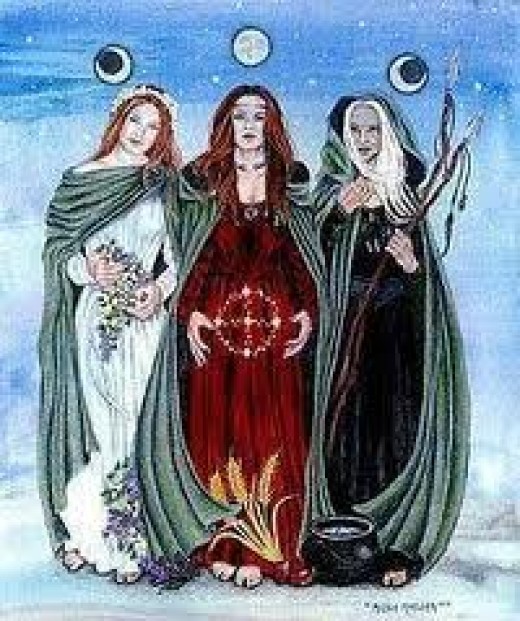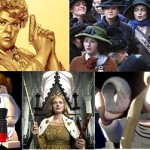When they write about you do they talk about your thighs? Or your girlfriend? They validate me through having a boyfriend, someone wants me
Abby Whelan, Scandal.
[ Part 4 of 5: 1) The intimacy of the written word, 2) Structure, 3) Archetypes and aesthetics, 4) Women 5) Possession, the relations between minds]
Scandal is extraordinary, precisely because the women in it, like Abby Whelan above, articulate exactly how society views them in 2016 and depressingly enough, she is spot on. Women are still viewed by the way they look and the men with whom they are associated.
It is said that Jesus had a whole entourage of women who travelled with him. But if the women were there, we don’t know anything about them when we read the stories in the Bible. If they held his hand, uttered words of wisdom, or stood in the light receiving the same appreciative words of confirmation that God uttered over him, no one cared to write it down.
Prostitutes and saints
The one time they had to, was when Mary Magdalene went to Jesus’s grave on Easter morning to find him resurrected. The men had fled, so she was the only one there to meet him. History has rewarded her by calling her a prostitute and even though historians have said that wasn’t the case at all, the label has stuck. All the men got sainthoods, btw.
It reminds me of Joseph Campbell’s monomyth. Women only appear in it as temptresses or goddesses, and they only have support roles. We don’t hear their stories or their trials and tribulations. Instead they are silent.
In his book, Christopher Vogler tries to demonstrate how the hero’s quest could apply equally well to women, like this:
The masculine need to overcome obstacles to achieve, conquer and possess may be replaced in the woman’s journey by the drive to preserve the family and the species, make a home, grapple with emotions, come to an accord or cultivate beauty.
Cheers, thanks for that Chris!
Busy women
Campbell himself said that we only find women in fairytales because women have always been too busy to sit around telling stories. And, when Frank McConnell analysed how hero’s stories make us better in his book Storytelling and Mythmaking, it is men who do the self-actualisation, whilst women are playing prostitutes with hearts of gold, or enduring like Penelope, whilst Odysseus is off chasing glory.
It is the same with the archetypes discussed in the previous blog. We have women playing the shadow or the trickster purely as a plot devices to move the plot along; like the damsel in distress, the old crone jealous of the fair maiden, or the jilted lover. These are all tropes which the hero battles and conquers. The poor women are never the heroine, never the mentor, and they are never allowed to self-actualise. The rare cases in which they do, they become outcasts (don’t be taken in by the sexy pic above of the goddess trinity), shunned and lonely, or punished. Because they are not there to be anything but decoration and to soothe a man’s brow.
Women in the movies
Thankfully, things are changing. In previous blogs I have talked about Rey in Star Wars, and the women’s worlds of Spy and Suffragette. And, to this I want to add Ghostbusters (2016) .
I watched it last night for the first time, and thought it was brilliant. I have never watched the original Ghostbusters, because I never wanted to. The first time I was aware of it on TV, I was a teenager and as it started, I thought: Huh blokes and I went upstairs and read a book.
Last night was totally different. I loved every second, it made me laugh out loud, and as someone who has decided not to dye her grey hair anymore, the riff on hair dye was really funny, because that was happening to me a lot. And when Sigorney Weaver turned up at the end to high-five and utter the immortal line: Safety lights are for dudes… well my life felt complete.
A room of one’s own
There was no patronising female quest of creating a home or attracting a man to make a woman feel validated, it was just smart women being themselves and saving the world. They didn’t need recognition, just a nice space to carry on doing what they love. Virginia Woolf would be so proud.
I can’t wait to see more stories like this one. Lot’s more.
Part 5: Possession, the relations between minds






